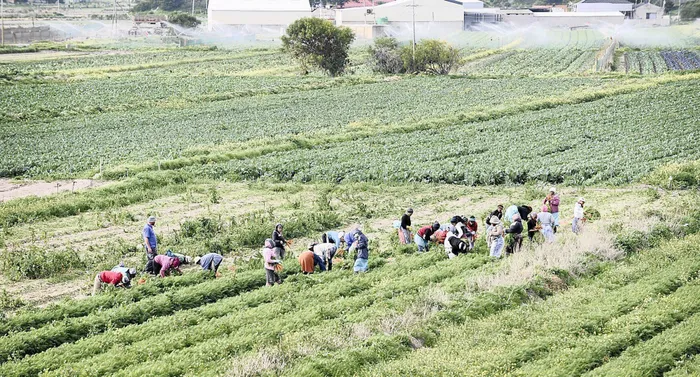Land reforms, climate change, cheap imports pose risks to agriculture in KZN - FNB

Agriculture in KwaZulu-Natal is growing at around 12 percent per annum, driven by diversification, but there are risks to the sector posed by land expropriation, climate change and cheaper imports, First National Bank said on Monday. Leon Lestrade African News Agency (ANA) Agriculture in KwaZulu-Natal is growing at around 12 percent per annum, driven by diversification, but there are risks to the sector posed by land expropriation, climate change and cheaper imports, First National Bank said on Monday. Leon Lestrade African News Agency (ANA)
JOHANNESBURG - Agriculture in KwaZulu-Natal is growing at around 12 percent per annum, driven by diversification, but there are risks to the sector posed by land expropriation, climate change and cheaper imports, First National Bank said on Monday.
KwaZulu-Natal is recovering from a severe drought with indicators pointing to a normal rainfall for South Africa's summer rainfall areas and boding well for production, said Dawie Maree, head of information and marketing at FNB Agriculture.
The sector contributes around four percent to gross domestic product in South Africa’s second largest province by population, with sugar production in the north and south coasts, dairy and irrigation maize in the Midlands region and mainly cattle and commercial poultry production inland.
It has also seen a dramatic increase in the production of macadamia nuts and avocado, mainly for export markets.
"In terms of the agricultural sector, the province is still growing and there is a significant amount of high potential arable land available, specifically in the tribal areas," Maree said in a statement.
But while FNB had a substantial market share in the province’s agricultural sector and considered it very important in its agricultural strategy, risks lurked from government driven land reforms, climate change and cheaper imports, he added.
"Land reform and expropriation without compensation is one of the key risks. We consider the new policy on land a risk for agriculture but are not overly concerned at this stage. We do expect more clarity around March next year," said Maree.
"Climate change and its impact can be mitigated. Following the 2016 - 2017 drought farmers have now diversified not only their products but also their geographical areas."
FNB noted that the province's Durban port was an important factor for exports, but also brought cheaper imports in coastal areas historically known for sugar production. A new sugar tax on beverages had also caused a marked decline in demand.
"There has also been an increased risk of cheap sugar entering the country from South America and increased competition from commercial sugar expansions in Zambia and Mozambique," said Maree.
Prices in dairy products, the second most important commodity in the province, were currently too low, with long life milk imported into South Africa tariff free, while milk powder and cheese carried tariffs of roughly R4.50 per kg.
"Prices, especially in coastal regions are suppressed mainly because of UHT milk imports from South America and countries like Poland and Slovenia are landed at cheaper prices in Durban, the Western Cape and Port Elizabeth," he said.
Livestock prices had also taken a knock from the outbreak of foot-and-mouth decease in January, while poultry farmers were battling dumped products and increasing feed costs.
"Despite the temporary headwinds, we are confident that the agricultural sector in KwaZulu-Natal is still poised for growth, and an even greater contribution to the country's GDP," said Maree.
- African News Agency (ANA)
Related Topics: